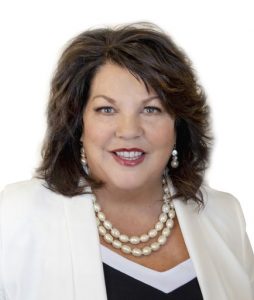The Loneliness Crisis
By Cynthia Howard RN, CNC, Ph.D., FAIS
*This is an article from the Winter 2020/2021 issue of Contentment Magazine.

Loneliness was an epidemic even before the pandemic that made it worse. It is hard to believe that loneliness has been on the rise in such a global, hyper-connected society. As people have become more intimate with their devices, there is less face-to-face interaction, and with that, a decreasing ability to listen, empathize and connect in a wholehearted way.
Loneliness has been found to be a risk factor for early mortality by up to 32%.1 It increases the risk of obesity and depression as well as other issues that negatively impact the quality of life.2 And when ignored, it is easy to see how this can start a downward spiral for health and a prosperous and full life.
Research aside, let’s get real – loneliness is painful! It is physically and emotionally painful to be disconnected, experience social isolation, and all the side effects of feeling lonely. One of the reasons loneliness may have increased during this epidemic is because of the shame that one feels when faced with this disconnect.
Families have broken down and spread out, living all over the country. Many communities have changed from being physical neighborhoods where you walked to the bus and said hello to the shop owners on the block, to a virtual world where you can log in, with or without a camera. It is easy to see how social isolation has increased, setting up greater loneliness.
One of my clients, who we can call Betsy, talked about the impact Covid-19 had on her. Initially, she felt relieved to have a “pause” from her rushed pace of running from the gym, to the office, to her association meetings, and then to school. But within a few days, she missed her short and friendly conversations at the coffee shop. When at the gym, she had listened to inspirational material and now she was no longer feeding her spirit with those positive messages. She had taken for granted the smiling faces she experienced at the association meetings and realized, that in her busy-ness, she had not taken the time to develop closer relationships with those with whom she had been interacting casually.
As the quarantine continued and she worked from home, she felt lonely. Looking back, Betsy told me she had not realized how important these coffee shop and professional meeting interactions had been to her, how they gave her a sense of connection. Without these, it became painfully clear to her that she needed friends. Yet, she felt unprepared as to how to go about that.
Who knew that making friends would be hard?
As it turns out making friends is harder today than ever before. With the spreading of families and the shift to virtual communities, there is a breakdown in social interaction and the ability to form meaningful connections.
Social media provides a virtual experience but no real relationship, giving people an illusion of connection.3 Behind the scenes, people are comparing what they see in posts, airbrushed for an optimal image, to how they feel on the inside. This social comparison leaves many with the feeling of not measuring up. And this makes it hard to have the confidence to be vulnerable enough to take a risk on face-to-face interaction.
I hear from so many of my clients that this quarantine has left them wanting to have face-to-face encounters and “real” interactions. I understand this to mean authentic relationships based on intimacy (into-me-see?) and vulnerability.
The way to make friends and begin an authentic connection is to recognize that social media is like fast food; it will not sustain you and should only be consumed every once in a while. Instead, find ways to interact with others, whether it is a volunteer experience, dog walking at the shelter, supporting your food bank or local church, or taking an exercise class. Find ways to greet people with a genuine smile and full eye contact.
Develop Your ‘Make New Friends’ Strategy
- Have a strategy. Recognize that having a strategy to make new friends is how you will break the habit of “going it alone.” Having a plan will breakthrough the mindset, “this is how I have always done this.”
- Make a list of the new things you want to learn. Do you want to ride bikes, learn to ice skate, play bridge, play the piano, wind-surf? What is it you have wanted to learn? Write it down and set up your timeline for trying it out.
- Keep a journal. Write about your experiences and clear your mind as you venture out and try new activities. It is easy to let the frustration of trying new activities keep you from continuing on your journey. Journaling will also help you acknowledge how far you have stretched yourself. Celebrate your small wins.
- Everyday get to know one new person. This can be at work, in the coffee shop, at church, or on the train. Smile, and ask them their name. You can even tell them you have a goal to meet one new person a day, and this may open up a wonderful conversation about how isolated they feel!
- Just do it. Nike has a brilliant tagline that applies to taking risks and stepping out of your comfort zone.
As humans, we are hardwired to connect and crave a sense of belonging. Make this your goal as you move into a new year: expand your face-to-face interactions and find ways to experience more meaningful connections more often. Your daily interactions are the foundation of friendships and will help you flourish emotionally, physically, and spiritually.
References
- Hawkley, L. C., & Cacioppo, J. T. (2010). Loneliness matters a theoretical and empirical review of consequences and mechanisms. Annals of behavioral medicine: a publication of the Society of Behavioral Medicine, 40(2), 218–227. https://doi.org/10.1007/s12160-010-9210-8
- Holt-Lunstad J, Smith TB, Baker M, et al.Loneliness and Social Isolation as Risk Factors for Mortality – A Meta-Analytic Review. Perspectives on Psychology. Published online March 11 2015
- Wrzus, C., Hänel, M., Wagner, J., & Neyer, F. J. (2013). Social network changes and life events across the life span: A meta-analysis. Psychological Bulletin, 139(1), 53–80. https://doi.org/10.1037/a0028601
ABOUT THE AUTHOR
 Cynthia Howard RN, CNC, Ph.D., Executive Coach, CEO, Chief Energy Officer, Ei Leadership. Improving Performance and Well-Beinghelps leaders, professionals, and organizations get more done by doing less. She confronts the tough issues using proven tools to transform workplace chaos and complexity into progress and consistent results. Green Belt in Lean Sigma. CertifiedScrum Master. Cynthia researched the impact of stress on healthcare practitioners during her graduate degrees and has been in private coaching practice for over 20 years. Cynthia is a pioneer of the resilient mindset and embraces essential oils as one of the power tools to transform perspective. Author: What’s Stopping YouToday?6 Keys to Energize your Success, TheResilientLeaderMindset Makeover: Energize your leadership, H.E. A. L.: Healthy Emotions Abundant Life. www.eileadership.org
Cynthia Howard RN, CNC, Ph.D., Executive Coach, CEO, Chief Energy Officer, Ei Leadership. Improving Performance and Well-Beinghelps leaders, professionals, and organizations get more done by doing less. She confronts the tough issues using proven tools to transform workplace chaos and complexity into progress and consistent results. Green Belt in Lean Sigma. CertifiedScrum Master. Cynthia researched the impact of stress on healthcare practitioners during her graduate degrees and has been in private coaching practice for over 20 years. Cynthia is a pioneer of the resilient mindset and embraces essential oils as one of the power tools to transform perspective. Author: What’s Stopping YouToday?6 Keys to Energize your Success, TheResilientLeaderMindset Makeover: Energize your leadership, H.E. A. L.: Healthy Emotions Abundant Life. www.eileadership.org
Contentment Magazine
The dictionary defines “content” as being in a state of peaceful happiness. The AIS magazine is called Contentment because we want all of our guests and members to find contentment in their lives by learning about stress management and finding what works best for each them. Stress is unavoidable, and comes in many shapes and sizes that makes being in a state of peaceful happiness seem like a very lofty goal. But happiness is easy to find once you are able to find ways to manage your stress and keep a healthy perspective when going though difficult times in life. You will always have stress, but stress does not always have you!

Leave A Comment
You must be logged in to post a comment.